Mi3's top stories of 2022: Marketing science wars, the ESOV problem, crap briefs, privacy crunch – and why vanity metrics must die
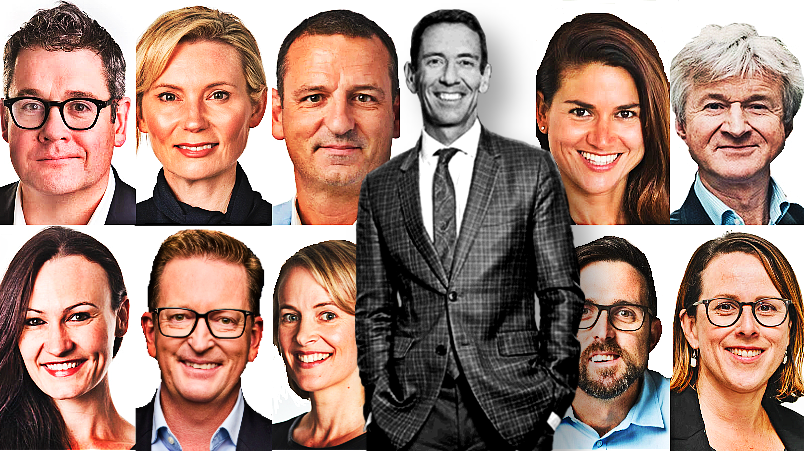
Crap briefs, a war on vanity metrics, feuding marketing professors, and marketers getting stuck into a bit of mess. Mi3’s top 25 stories – of more than a thousand read on the site this year – mirror industry’s key challenges and looming fears. Featuring: Tabcorp’s Jenni Barnett, Essence MediaCom’s Pat Crowley, Nine’s Liana Dubois, Dr Katherine Kemp, Johnny Ryan, WPP’s Katie Rigg-Smith, Coles 360’s Paul Brooks (twice); Effectiveness’ Peter Field, Salesforce’s Colin Fleming; Initiative’s Mel Fein, B2B Institute’s Pete Weinberg and Jon Lombardo, Better Brief’s Matt Davies and Pieter-Paul von Weiler, Previously Unavailable’s James Hurman, and Professors Karen Nelson-Field, Jenny Romaniuk, Mark Ritson and a pretty punchy Byron Sharp. Bookmark this one
25.
I like a bit of mess. That’s what I inherited at CBA and Telstra really. I love trying to move big incumbent Australian brands forward.
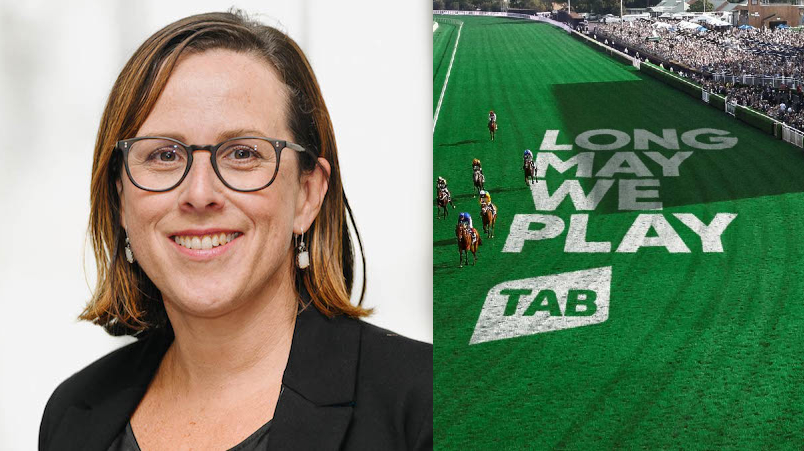
Jenni Barnett: "It’s a broader C-suite remit. I wasn’t looking to be honest. I was happy at Telstra.”
Jenni Barnett’s appointment as Tabcorp’s Chief Customer Officer set a new benchmark for digital transformation roles – and CMOs – and set in train a chain of events that saw Telstra CMO Jeremy Nicholas step into her former role, and Brent Smart switch from NRMA to the marketing gig at Telstra. At Tabcorp, Barnett has product, data and data science, omnichannel customer experience and personalisation, brand, marketing and sponsorship in her C-suite remit. And she’ll have charge of Tabcorp’s data ethics, a new capability rapidly emerging for blue chips, along with involvement in mergers and acquisitions. A whip-smart marketer who shakes things up says what she thinks – gold for journalists.
24.
It’s not a cost-cutting exercise. The depth that I'm seeing in the MediaCom business fills all the gaps I had in my business yesterday.
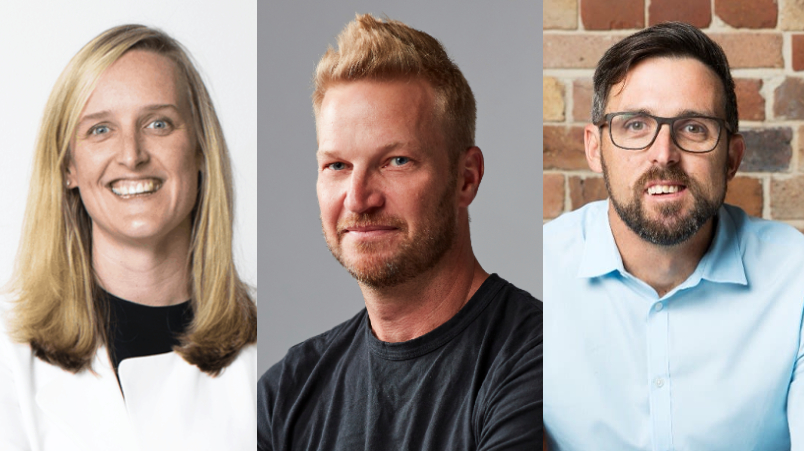
Pat Crowley was known Mr Commbank, a man in the trenches, wedded to the tools and a 20-year client relationship. Then WPP folded Ikon into AKQA Media, then into Essence, where Crowley took the helm under new GroupM boss Aimee Buchanan. Then global boss Christian Juhl decided to merge MediaCom into Essence, leaving Crowley heading a 550-strong media agency with close to a billion in billings. A pretty big year.
23.
If you are buying dirt cheap reach on platforms with little to no effective attention, you are likely wasting your money or that of your clients.

All Australian line-up: Nine sales chief Michael Stephenson, Nine CEO Mike Sneesby, and the media company’s first CMO, Liana Dubois.
Attention metrics gained major traction in 2021 and 2022 – and Nine threw its hat in the ring, announcing a deal with Prof. Karen Nelson-Field's Amplified Intelligence at its 2021 upfront. Six months later, the publisher became the first major Australian media group to share the results of its resulting attention study, which threw up some interesting findings across BVOD on mobile, BVOD on CTV, and Linear TV. Kudos to Nine for looking beyond reach, but what happens next is the key question.
22.
There has been no loss of productivity or clients. People being happy is key – autonomy, trust, letting them work at their own pace delivers best results. Dictating days in the office is pretty meaningless.
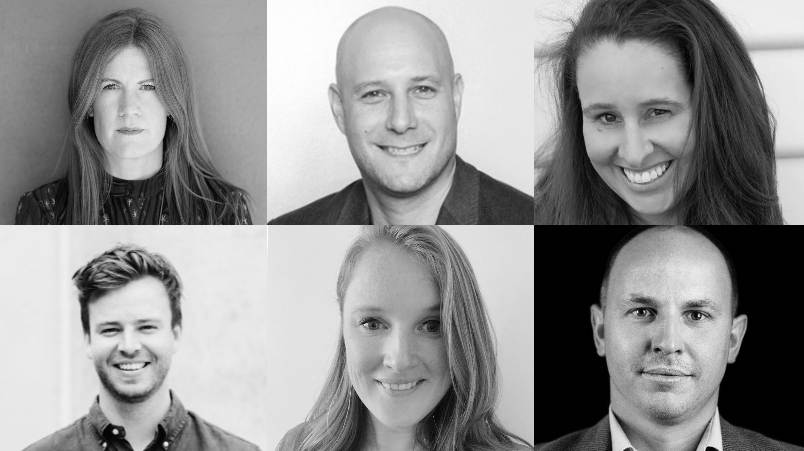
Culture club: How to bring people together without dictating rules from a pre-Covid world?
To be in the office, or not to be? That was the question at the start of the year as work from home recommendations lifted. More than a few agency bosses wanted to get everyone back in most of the time, but couldn't be seen to force people, given the talent wars and all that. So how to do it? Let staff write their own rules, or tell them they can work wherever or whenever they want seemed to pay off for some. Chris Howatson, Aimee Buchanan, Tom Frazer, Laura Nice, Sian Whitnall, Nick Behr and Virginia Scully unpacked how they're tackling living – and working – in a post-Covid age. This one is probably worth a one-year-on revisit.
21.
The networks collaborating to gain more control and visibility over their largest growing assets strategically makes sense – eventually BVOD and linear TV revenues will flip. They are collectively trying to build a more transparent, premium video ecosystem and something like this has to happen.

"If you want a frequency-capped buy across the major publishers… using a common ID… this is how you will have to do it."
Covert ops: TV networks plot BVOD walled garden powered by OzTam IDs to counter YouTube’s might
News that Seven, Nine and Ten were (and apparently still are, despite reservations from Paramount lawyers) attempting to build a combined 'BVOD Marketplace' that uses OzTam IDs to enable targeting and capped frequency across networks in a bid to counter YouTube's might got some traction at the start of the year. Burned by announcing grand initiatives and then taking years to deliver, the networks didn't want to go on record. They aimed to be in market by June '22 – but now there are question marks, as ever, about whether they can get it together.
20.
There’s no more effective outcome than targeting someone you know is an intended purchaser of a product ... CEOs are licking their lips.
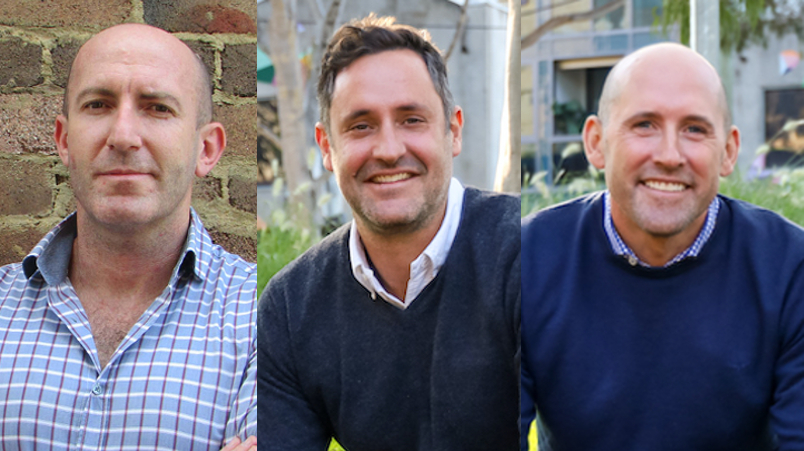
(L-R): Endeavour Group's Lachlan Brahe, and Zitcha's founders Jack Byrne, co-founder of Melbourne indie Hatched, and Troy Townsend, co-founder of The Pistol.
Retailer media will likely blow $1bn by 2025 forecasts out of the water. New players are entering the market behind Woolworths and Coles, which make up the lion’s share. Endeavour Group earlier this named Lachlan Brahe as its new retail media division chief, while Hatched co-founder Jack Byrne and former CEO of The Pistol Troy Townsend launched Zitcha, a platform to capitalise on the growth of the sector. They claim retailers are just the beginning – soon everyone with first party data will monetise audiences and compete for ad dollars. Which sounds pretty dystopian, but stranger things have happened.
19.
The consultants are eating the lunch of the larger agency models.

Martech movers, clockwise from top left: Venntifact's Joey Nguyen, Steven Hann; New Republique's Stacey Isaac, Nima Yassini; Blended Digital's Damon McMillan, Adam Crow.
Deloitte’s Australian and New Zealand unit in February snapped up three specialist firms in martech and CX – Venntifact, Blended Digital and New Republique – despite interest from the global communications giants. Along with talent raids on big creative agencies and acquiring Mumbai-based offshore content studio, Madras, the consulting firm is intent on pacesetting with Accenture for tech, UX, martech and creative services leadership.
18.
The advertising press story is effectively 'We're the champion identity-farming uber-trackers, just like Google and Meta'… The privacy policies give consumers the 'nothing to see here' version of data practices. It's a pretty stunning contrast.
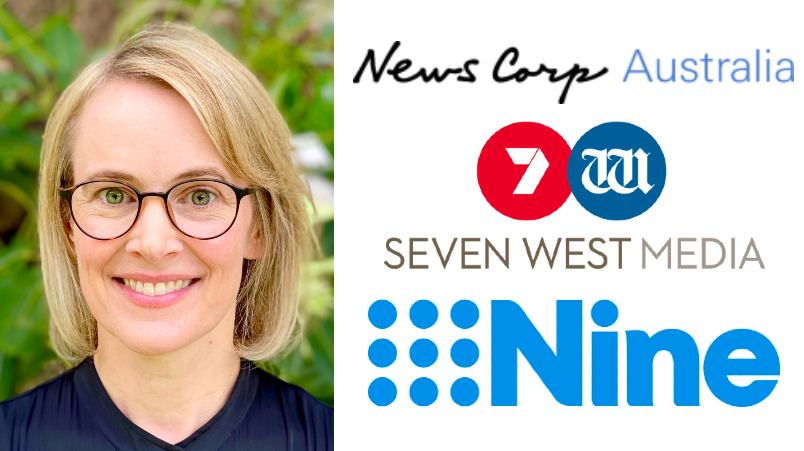
Dr Katharine Kemp presented her paper, How to Track Consumers Who Don’t Want to be Tracked, at the ACCC’s National Consumer Congress earlier this year.
Prominent UNSW Law & Justice faculty academic, Dr Katharine Kemp, published a paper in August recommending News Corp, Nine and Seven be scrutinised under Australian Consumer Law for their use of terms like “anonymous” and “de-identified” when talking about consumer data. The publishers, which reject Dr Kemp’s findings, claim to distinguish millions of Australians for advertising purposes using vast troves of behavioural data. Kemp is still on the case – and has more papers to come.
17.
Oracle is an important part of the tracking and data industry. It has claimed to have amassed detailed dossiers on 5 billion people, and generates $42.4 billion in annual revenue.
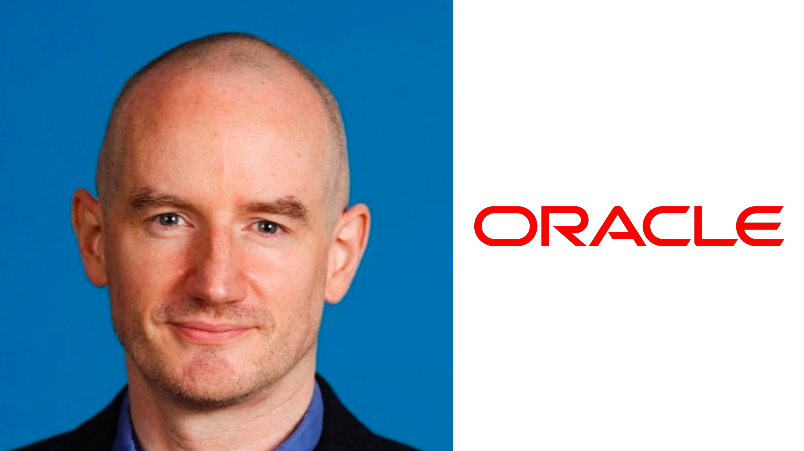
"We are taking this action to stop Oracle’s surveillance machine," Dr Johnny Ryan says.
Oracle is in the crosshairs of global privacy advocates, with a trio of powerful campaigners – including the Irish Council for Civil Liberties’ Dr Johnny Ryan – filing a class action lawsuit in California alleging violations of privacy on behalf of all internet users. Oracle has “hidden dossiers” on 5 billion people, the lawsuit says, and coordinates a global trade of data through its Data Marketplace.
16.
My fear has been in announcing this to the market that it would pit two women against each other. I adore Aimee. So no, there's nothing there.
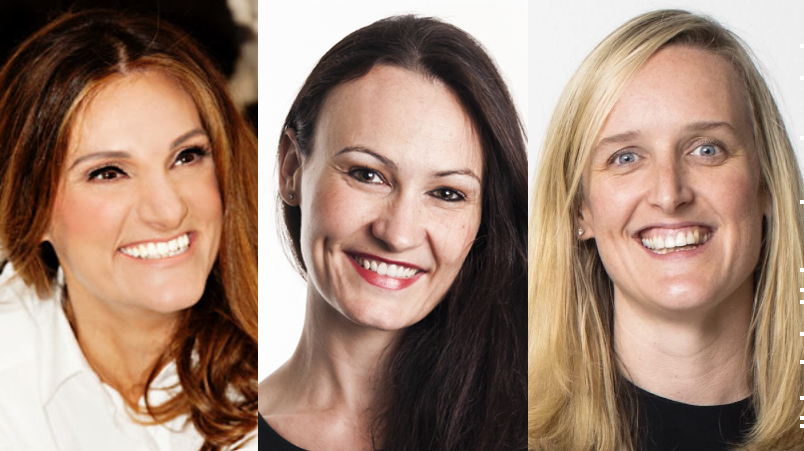
News that Mindshare CEO Katie Rigg-Smith was leaving the agency she started at as an intern two decades ago got plenty of attention. She's handing over the reins to Maria Grivas and stepping up to become WPP's ANZ Chief Strategy Officer.
15.
Brand marketers, who are in the most precarious position, need to lean in to this idea of being more metrics and data-driven. It’s less about brand purpose and more about association with buying situations. If they position themselves as financial and commercial, I think they are much less likely to have their budget cut.

B2B Institute's Jon Lombardo, left, and Pete Weinberg: Performance marketing makes no sense in a recession. Better to cut lead gen budgets and go harder on brand to grow faster in the recovery.
Brand budgets are usually the first casualty of recession. But lead generation or performance budgets should actually be cut, argue Jon Lombardo and Pete Weinberg, respective heads of research and development at The B2B Institute, because nobody is buying. To escape the axe, they say brand marketers need to stop talking about brand purpose, and start talking growth metrics.
14.
You have to be able to flaunt what you do … Social media and this idea of ‘wokeism’ has taken over massively, it’s the only way to keep them really engaged in the work.

L-R: whiteGREY's Lee Simpson, Hello Social's Yay Xavian, and TKR Group's Kirsty Tavae.
'Wokeism' works: A recruiter’s agency salary guide – but 'how the f*ck are you going to keep them?'
Talent wars – a recurring theme in 2022 and a current price list for roles from executive recruiters TKR Group demonstrated just how far salaries soared amid a talent crunch, and racked up hits as staffers and bosses eyed what everyone else is demanding to get out of bed. Meanwhile, "Wokeism" has taken over "massively" in the workplace, while one recruiter, TKR's Kirsty Tavae, suggested mentors leaving created a domino effect among teams: 60 per cent of her calls are related to people whose mentor has left.
13.
When you look at the past ten or 15 years in terms of where growth has come from, this is the next one ... But [Coles'] inspiration is probably drawn more closely from what the likes of Walmart and Tesco are doing overseas with regards to what the model looks like here in Australia [than lifting a local rival's playbook].

Ronson and Brooks: Bidding to carve out a bigger slice of what Brooks thinks will be a $1bn-plus market within three years.
2022 was the year the broader market sat up and took note of retailer media - including Coles. After letting rival Woolworths take a massive headstart, it decided to enter the fray, hiring former Nine, Carat and MediaCom exec Paul Brooks to steer the trolley – and stop Woolies' supermarket sweep in its tracks. Brooks reckons there are better models to emulate, and said he's lifting UK-US templates rather than creating a local me-too.
12.
We are seeing the ridiculous pay being asked for. I had someone last week with two years' digital media experience who had four different roles in two years ask for $150k… yikes! No thanks.
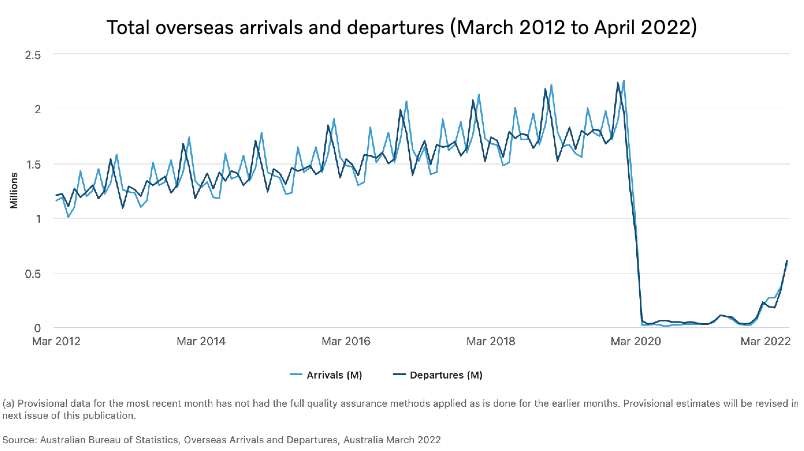
The number of people arriving into Australia has collapsed since its pre-Covid peak, and is still barely ticking upwards. More needs to be done to entice UK, US and Canadian talent, recruiter Brenton Moore from MAARS says.
Talent wars went rogue in 2022, especially within agencies. It got to the point where entire teams were being poached, leading in some cases to (probably fruitless) cease and desist letters and public apologies at MFA board meetings. Salaries surged 20 per cent. Juniors wanted $90k, those with two years experience were shopping for $150,000. The biggest concern, per one agency boss? Young talent struggling with the increased responsibility and workloads that come with their bigger pay cheques.
11.
John Philip Jones formalised [ESOV] 30 years ago, and it’s been a very strong relationship. But it is breaking down. It's simply because the money hasn't been chasing the attention in the way that it once did.

Peter Field, Karen Nelson-Field, Orlando Wood: Advertising is failing to build brands, fracturing the relationship between ESOV and growth. But there are fixes.
The global ad industry faces a three-pronged threat to its stated ability to drive growth, warn ad effectiveness, attention and creative cut-through luminaries Peter Field, Karen Nelson-Field and Orlando Wood. Long-standing marketing rules such as ESOV and mental availability are being undermined by the mistaken collective belief that left-brain, short range techniques – read performance marketing – will drive growth and encode memory structures, and that all channels are equal in delivering attention. "The mental availability fuel supply is being drained," warns Field. But there are fixes...
10.
Vanity metrics is a rampant disease inside organisations, for sure. It's something we're working aggressively to eradicate.
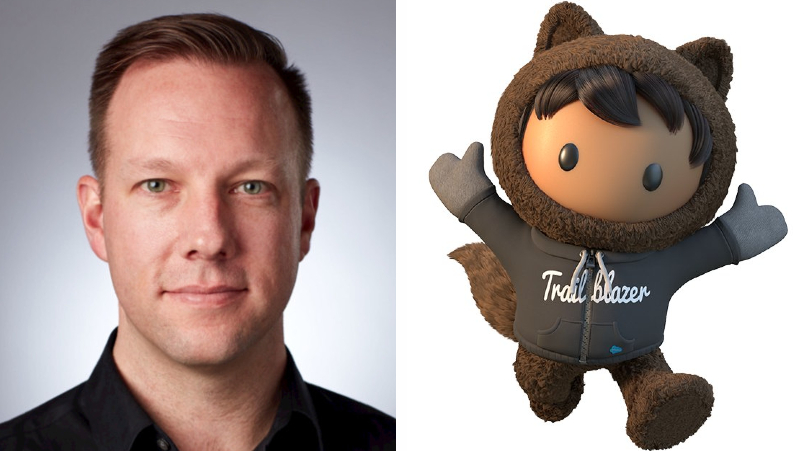
Salesforce's Colin Fleming and one of its mascots, Astro.
Prior to 2015 and Astro, a brand mascot designed for a tee-shirt at a developer conference that "went viral", Salesforce’s ads and disruptive brand position had lost their mojo, Now it’s one of the world’s most valuable brands, with brand maybe even more valuable than Salesforce’s IP, per Colin Fleming, former racing driver turned Salesforce EVP Global Brand Marketing. He reckons the secret is focusing on building memory and going longer on brand investment than most – and showing the CFO exactly why that will pay off. Chasing short-term stuff that doesn’t matter, namely vanity metrics, must be “eradicated”.
9.
This years’ cohort, our 8th in Australia, represents the calibre and potential of the remarkable emerging leaders in this country yet again.
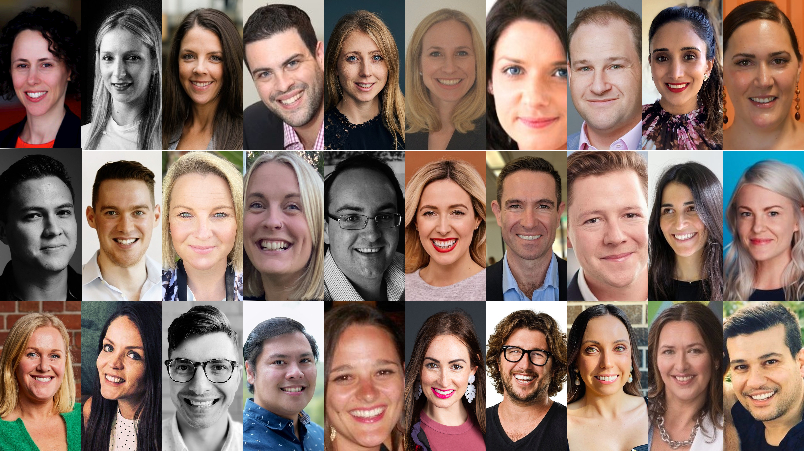
The members of the 2022 Scholarship Program. OMD co-CEO Laura Nice, a 2020 Scholar, said : “Program doesn’t do it justice – it’s membership to a money can’t buy club, some would say cult and they’d be right.”
The Marketing Academy is pretty hard to get into, for good reason. Those that made the cut – and they all graduated last week – shared the heck out of this one. See the next generation of marketing, media and agency leaders here.
8.
Last week Mi3 published a report on a presentation from Professor Byron Sharp, where he spent much focus and energy denouncing the work of basically any marketing effectiveness researcher that was outside of his organisation. The fact that the findings of those researchers are consistent with his own appears either to be lost on him.
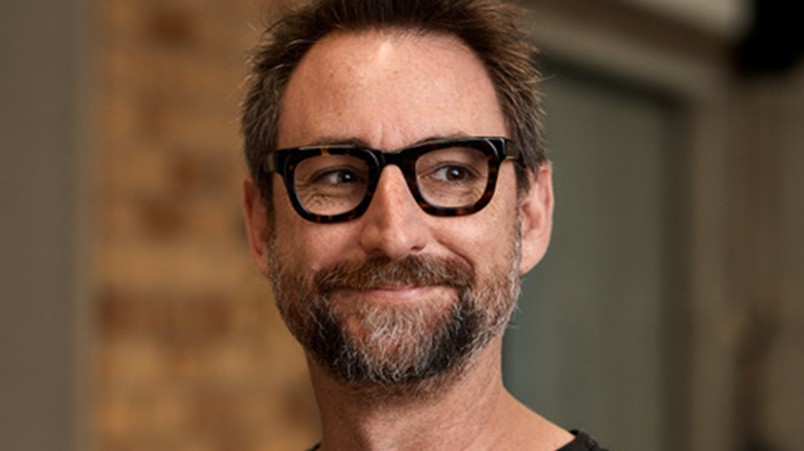
James Hurman: "Being married to a scientist, I’m well appraised of the stories of just how insecure scientists can be... [but] I find it perplexing that Prof. Sharp is so insistent on criticising others who have found the same results as his institution."
James Hurman skewers Professor Byron Sharp after the professor skewered Binet & Field, and "basically any marketing effectiveness researcher that was outside of his organisation" during a presentation at the Mi3-LinkedIn B2B Next conference (see #1 below). There's a barb or two in this one – and some salient points. "In the end, the agreement between marketing science and effectiveness researchers should be celebrated," per Hurman, not trashed.
7.
It’s not rocket science, it’s ‘do I put myself at a slight disadvantage in the transactional stuff but offer more?'
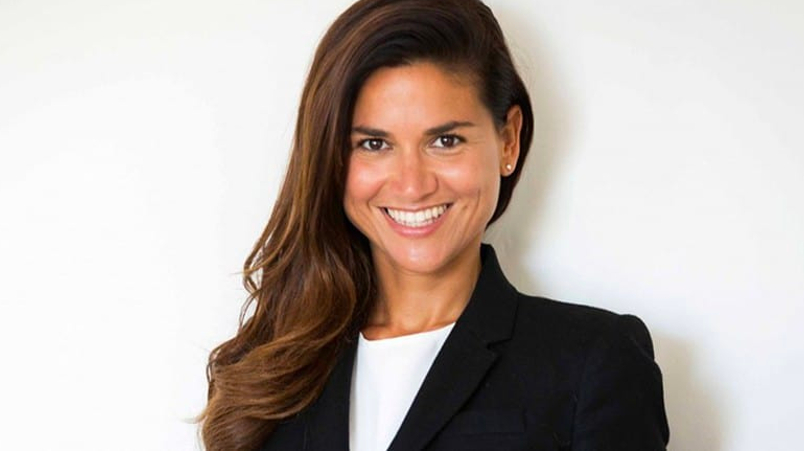
“Like everyone, we’re battling the salary issues. But it feels like the salary issue is not sustainable,” Initiative Australia's Mel Fein says.
Initiative is the first agency in Australia to offer its people free IVF treatment and adoption support, in a bid to create a culture of loyalty, retain its people and avoid incremental wage increases in a tight labour market. But it was also a deeply personal decision for the female leaders at the agency like CEO Melissa Fein, who has experienced first-hand the personal toll fertility difficulties can have.
6.
Second mover advantage means we can learn from some of the mistakes made overseas and locally … [Plus] we have actually got people that have moved from and understand the Cartology business into Coles 360.
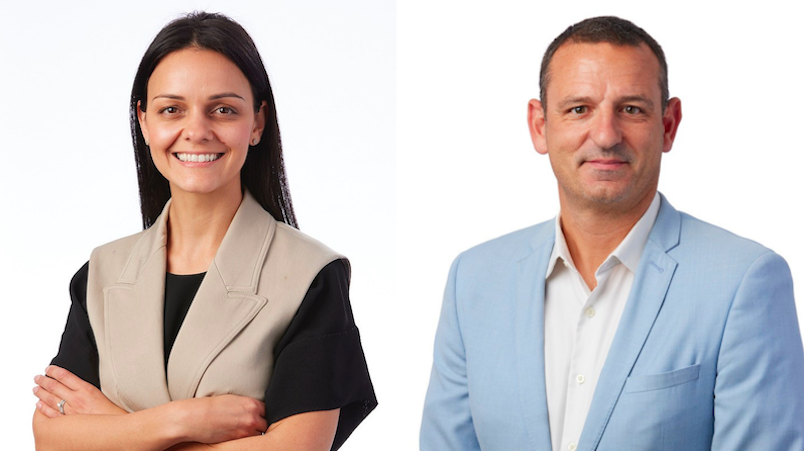
Billion dollar question: Can second mover advantage and avoiding the mistakes made by others create a retailer media world-beater? Jess Torre and Paul Brooks reckon it's all to play for.
Coles is playing catch-up on the billion dollar retailer media market but officially set out its stall in October, bidding to catch rival Woolworths and its Cartology unit. Coles 360 boss Paul Brooks reckons second mover advantage, “humility” said by some to be lacking to date, and a non-aggression pact between Coles business units, merchandise and suppliers will fast track its ambitions to be a global leader. Next year will likely give an indication as to whether he's on the money.
5.
Agencies are screaming for objectives. We just want to know what needs to shift in people's brain about the product or the brand you're selling that's going to drive a certain behaviour and that's going to drive a commercial goal … The worst briefs anecdotally contain only attitudinal objectives: ’Grow my awareness by 10 per cent’. Okay, what's the bigger picture here? What are you trying to achieve?”
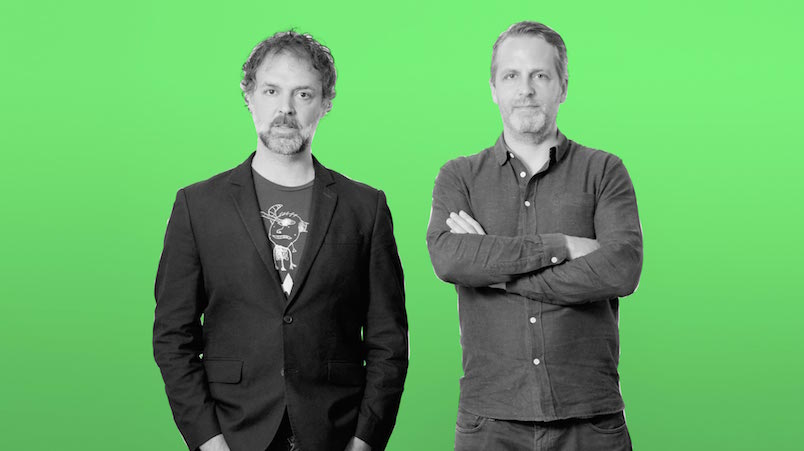
Matt Davies (left) and Pieter-Paul von Weiler: Half of Australian marketers have not been trained on how to write briefs, or the briefing process. And that's a problem.
The headline findings of the BetterBriefs Project and its research spanning 1,700 marketers and agencies make for grim reading, with a third of ad budgets being wasted as a result of bad briefs. In Australia, the data shows 50 per cent of marketers have not been trained on how to write briefs, so half don't know what they are doing. Unless things improve, marketer tenures – and standing within boardrooms – will continue to decline. But there are some simple fixes, say Better Briefs co-founders Matt Davies and Pieter-Paul von Weiler. Get your fixes here.
4.
Impression relativity and measurement clarity is a thing of the past, and what Bryon’s comments don’t reflect is the scale and the complexity of the error that now lies beneath his ideal of True North.
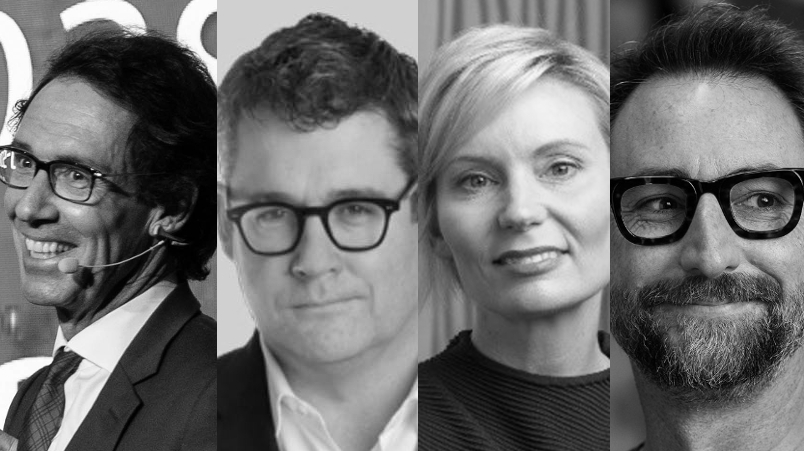
Double jeopardy: The unedited, untouched keynote address from Prof. Byron Sharp's at the Mi3-LinkedIn B2B Next Summit is live as an Mi3 podcast. Make your own call L-R: Prof. ByronSharp; Mark Ritson; Karen Nelson-Field; James Hurman
This one caused a minor fracas. Mi3 published the unadulterated audio from Byron Sharp's Mi3-LinkedIn B2B Summit presentation (see #1 below), after suggestions we'd spun the story. But Ehrenberg-Bass had strict terms in place with LinkedIn – we could write what Prof. Sharp said, but not publish the audio. A bit weird, but there you go. Given their commercial relationship and contract, not ours, we pulled it. But this piece wraps in punchy counteroffensives to Sharp's views from the likes of Karen Nelson-Field, Mark Ritson, Mike Follett, James Hurman and Jon Waite.
3.
A lot of advertising is geared to persuasion rather than building mental availability. Persuasion is about assuming you're in the room and you're arguing your point, whereas mental availability is about getting into the room. And so that's the big challenge: most organisations are failing to get into the room, but they're spending all their money on arguing as if they're already there.
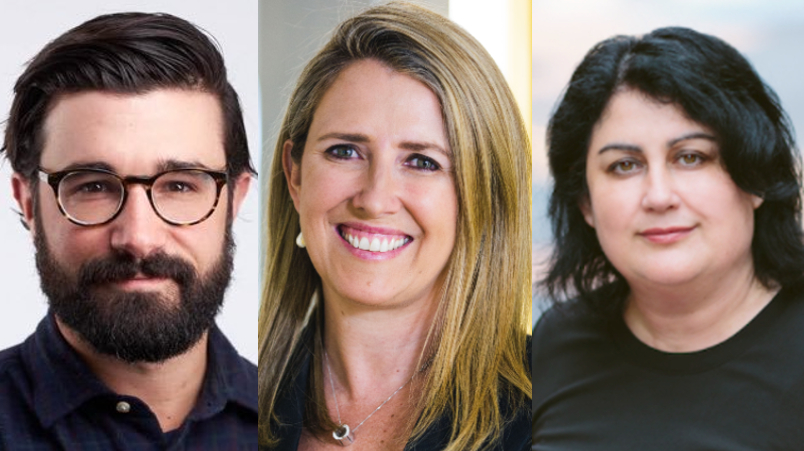
Jon Lombardo, Prue Cox and Jenni Romaniuk unpack how B2B – and B2C – brands can and should be growing faster and how and why marketers can win over the CFO. Hint: It's not by making 'drab, dull' lead generation ads.
From flipping the marketing funnel sideways to scotching “delusions” that retention and loyalty trump acquisition – and a new performance-enhancing twist on Binet & Field’s 60:40 brand to performance rule (it should be 95:5 in B2B) – the science unpacked in How B2B Brands Grow also applies in large part to B2C marketing, says its Ehrenberg-Bass co-author, Jenni Romaniuk. Jon Lombardo, Global Research Lead at The B2B Institute hopes the science emboldens brands to stop making “drab and dull” performance ads – and stop worrying about offending customers. The truth, he says, is few people care about brands at all: “It’s all upside. The job is always to build mental availability.”
2.
When we do get to talk about strategy, it's such over complicated wank that I sort of think it's probably better not to talk about it at all.
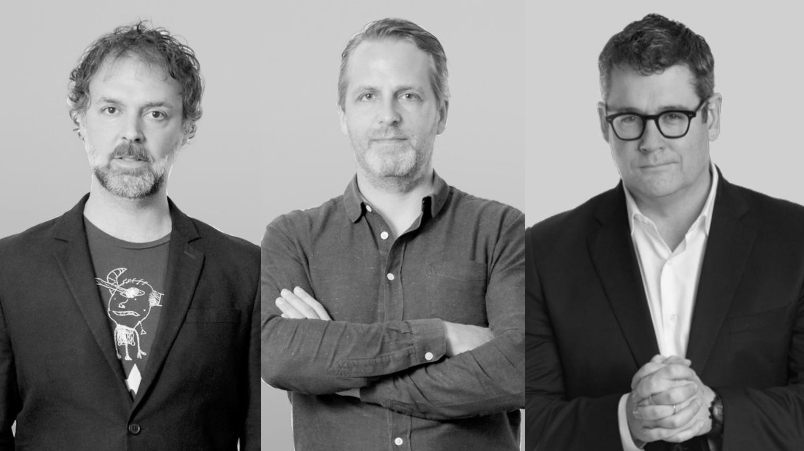
Better Briefs' Matt Davies (left) and Pieter-Paul von Weiler (centre), and Mark Ritson (right)
After a night in a pub yelling at the moon over the precarious state of agency briefs from marketers, two Australian strategists unveiled an eye-popping global study of 1,700 agencies and brands on the state of briefing. It showed marketers, seniors not juniors, are all but delusional on how good and effective they think they are in the critical briefing process while agencies have been quietly aghast – for more than a decade. Mark Ritson had a major hand in driving the BetterBriefs project, and subsequently co-authored a best practice guide with founders Matt Davies and Pieter-Paul von Weiler in a bid to help fix the global marketing affliction. Always good value, this one's worth a re-read.
1.
60:40 is supposed to be the magic formula for you. Spend 60 per cent of your money on advertising, whatever that is, no one's really clear, and 40 per cent on activations. But people have no idea what activations really are and there's no guidelines. So really, you can spend whatever you like. But it sounds good to have a formula.
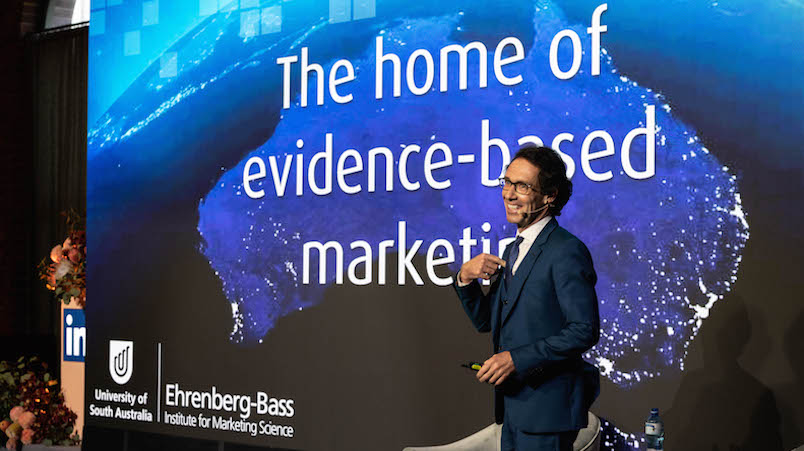
Byron Sharp: Focus on mental and physical availability to grow. Keep advertising and try to reach everybody, consistently.
This one went off. Byron Sharp lobbed a few bombs at the Mi3-LinkedIn B2B summit, polarising one or two people. Marketers adhering to Les Binet and Peter Field’s formula around brand to performance budget ratios are basing investment decisions on questionable data per the Ehrenberg-Bass supremo, who also let rip on attention metrics, dynamic creative and cross-channel network effects while giving rival professor Mark Ritson a backhanded complement.
